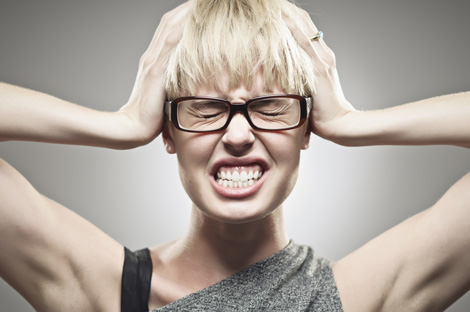Once you realize the habit then you can start to modify the behavior and treat the cause of the grinding condition. As for sleep grinding, it is the more difficult of the two kinds to treat as the physical activity is likely unintentional and, therefore, changing behavior is not adequate to treat it. In this type of situation, TMJ therapy or splint therapy may be applicable.
Teeth grinding while asleep is linked to sleep-related arousal that occurs in periods over the course of the night as you move sleep stages from deeper to lighter. As these transitions can occur several times in one night, and TMJ teeth grinding can be quite strong, you may wake up in the morning with a sore, tired, or dysfunctional jaw. The reason is that the jaw muscles overwork while you sleep, all without you knowing it is even happening. A sleeper may also have obstructive sleep apnea or another potentially serious sleep-related breathing disorder.
Other Ways to Treat a Migraine Headache Caused by TMD
Causes of Teeth Grinding or Clenching
- TMJ disorder
- Anger, stress, or anxiousness
- Misalignment of the upper and lower teeth (Malocclusion)
- A complication of Huntington’s disease or Parkinson’s disease
- In a child, a reaction to teething pain or an earache
Signs and symptoms of grinding include:
- Sore jaw
- Loss of bone
- Cracked or chipped teeth
- Seemingly unnecessary wearing of the teeth
- Rise in tooth sensitivity
- Wear and tear on dental fillings
Seeking Dental Treatment for Grinding
Seek out a dentist who specializes in solutions for TMJ teeth grinding. While regular dentists often tell patients that stress causes bruxism and reducing stress will help the issue, this is not always the case. Teeth grinding may be caused by jaw joint dislocation (TMJ disorder) and require specialized treatment. If the grinding is due to malocclusion or TMJ disorder, it is advisable to proceed with treatment to avoid consequential tooth and bone loss, development of headaches, and other types of pain in the head and neck areas from the tense jaw muscles. Understanding the signs to look for can help you identify a problem and get treatment. By taking action now, you can avoid a worsening condition later.
Types of Teeth Grinding Treatments
- Correction of Misaligned Teeth – For TMJ teeth grinding, in which grinding is linked with jaw and teeth problems, this treatment can provide life-long results
- Splints – Mouth splints fit exactly over both upper and lower teeth
- Mouth Guards – Get a custom mouth guard.
It is more affordable and comfortable to wear than splints For an extreme case in which teeth are worn down so much that chewing is impossible, Dr. Moradi may need to apply crowns or overlays to reshape tooth chewing surfaces. Find the best solution for your grinding issue by calling us at 713-590-9777. Book an appointment today to get a proper assessment of the impact on your teeth and help for the TMJ disorder causing TMJ teeth grinding.



